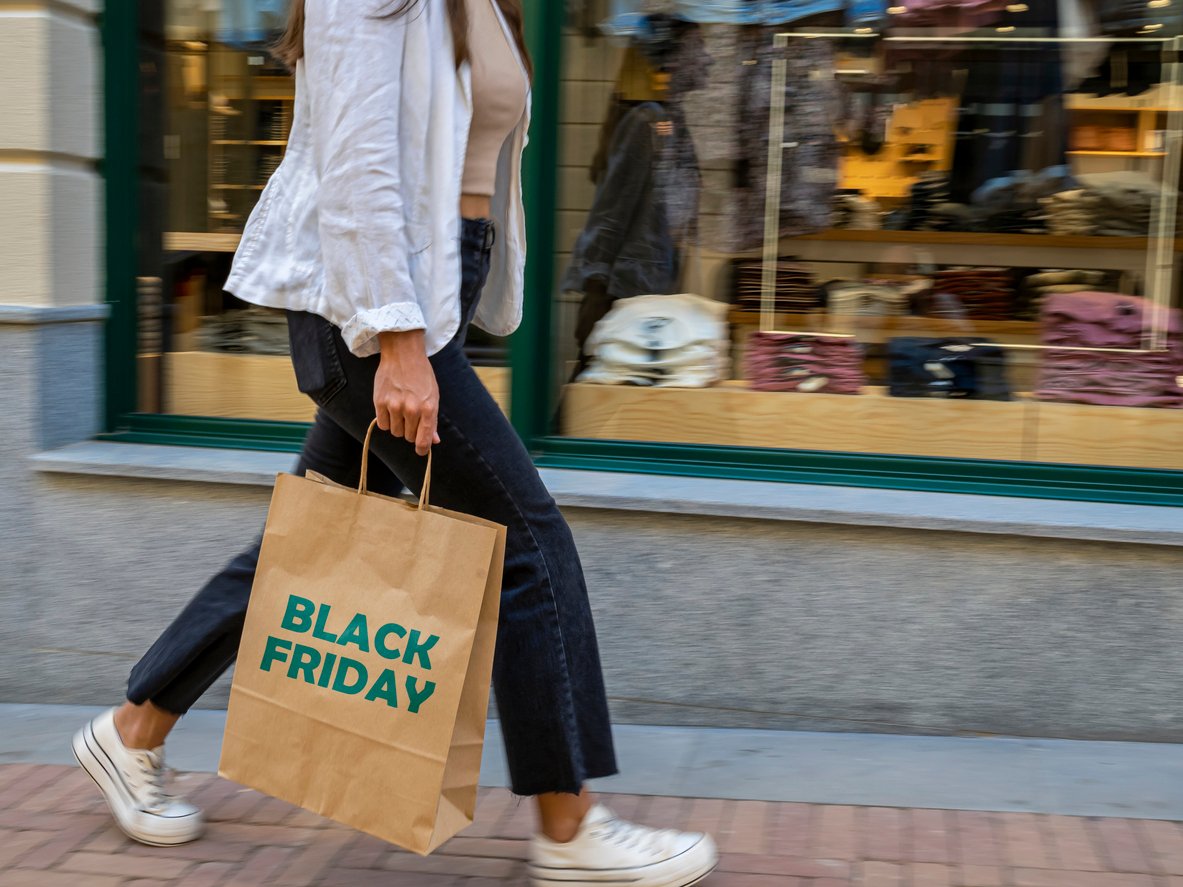BLACK Friday is Christmas come early for fraudsters.
Every online scammer around the world is looking to make a fast buck at the expense of unsuspecting punters looking for a bargain.
But in Spain, the ‘ciberdelincuentes’, as they are known, will be hard at work looking to fleece shoppers, particularly online.
As the promise of massive discounts gets the tills ringing in the run up to Black Friday on November 28, or its little sister, Cyber Monday on December 1, the risks of being conned is skyrocketing.
As the frenzy to snap up deals intensifies, so does the sophistication and sheer number of scams targeting the unwary.
“Black Friday is a perfect hunting ground for cybercriminals,” explains security expert Janus Nielsen, of Malaga-based Anytech365.
“The most vulnerable victims are those who rush into deals on websites they do not know, and people who let their guard down because they think a discount will disappear in seconds.”
He continues: “To stay protected, users should always install trusted security software and keep their devices up to date.”
Big Business
It’s big business, after all, with an estimated 10 billion euros being spent in the UK alone on the Black Friday weekend last year, with Spain not far behind.
It is estimated that Spaniards spend 145 euros per person on Black Friday deals, with around 61% of the population taking part, according to research by NielsenIQ alongside Barcelona’s OBS Business School.
This is some 30 euros less than in the UK and a staggering 100 euros less than in Germany, who are the biggest spenders on Black Friday sales.
This amounts to around 400 deals per second online and in the UK, Action Fraud reported around 12 million euros was defrauded from victims in 2023, a rise of 10% on the previous year.
Here some of the main ways of syphoning money from victims:
Phishing plague via fake websites
One of the most common tactics is the age-old ‘phishing’ scam, dressed up in glossy, discount-laden emails that arrive in your inbox.
Fraudsters create convincing, often near-identical copies of legitimate retailer websites and send emails claiming ‘amazing’ or ‘unmissable’ deals.
Clicking on the link leads the victim to a credible fake site where, upon entering their payment or login details, they hand their financial information directly to the criminals.
Remember if the deal looks too good to be true, it most certainly is.
“These sites are really good cloned versions of real well known brands,” adds Nielsen. “They have great product ranges and often fake reviews.
READ MORE: British pilot jailed for chemsex murder of boyfriend in drug-fuelled stabbing frenzy near Barcelona
Delivery fraud
Ripe at this time of year when everyone is ordering so much one the internet.
This is when correos or another Spanish courier company gets in touch claiming you need to pay a fee or there is a problem with a dispatch.
You get sent to a classic ‘phishing’ page that steals your card details once inside.
Social media scams
This is one to watch out for on downmarket rival sites to the Olive Press. It involves the fraudsters paying for sponsored posts that look legitimately like local businesses and even well known brands. Logs are stolen and A.I can create clever content, with again fake reviews.
Once you click you will go to the fake website and likely end up buying something with your credit card that is bogus.
Counterfeit Catastrophes
And then there is the sale of counterfeit goods. And please don’t fall for the huge discounts on designer bags, high-end electronics, or popular toys.
Almost always you will end up with cheap or fake versions, or worse, get nothing at all. Shoppers often realise they’ve been duped only after the poor quality ‘bargain’ arrives.
READ MORE: REVEALED: How fake police and bank officials are targeting expats in Spain-wide phone scam
Our tips to stay safe
To keep your hard-earned euros out of a scammer’s pocket this Black Friday or Cyber Monday, follow these basic steps:
- Check the URL: Before entering any personal or payment details, ensure the website address is correct and starts with ‘https’ (the ‘s’ stands for secure). Scammers often use slight variations on famous brand names.
- Use Secure Payment Methods: Whenever possible, use credit cards or established payment services like PayPal, which offer greater buyer protection than debit cards or bank transfers.
- Be Wary of Social Media Deals: Treat unbelievable discounts advertised solely on social media with extreme caution. Always navigate directly to the official retailer’s website instead of clicking on third-party links.
- Watch the language: One of the biggest giveaways is how they act, using emotive language about ‘scarcity’ and creating an urgency and excitement. They hook you in and then drive you to make a quick payment or the deal will be lost. Once they’ve piqued your interest, scammers then lead you towards a hasty payment.
Don’t let the rush for a discount blind you. A moment of caution is worth more than the headache of a stolen bank balance come the New Year.
And as Nielsen at Marbella’s long-based Anytech365 adds: “And remember having a professional tech support team, which you can have through as a subscription through our company can quickly get onto any problems.
“We give continual around the clock, cyber security advice, proper professional tips, and effective threat remediation, that can make a real difference.”
Click here to read more Crime & Law News from The Olive Press.








